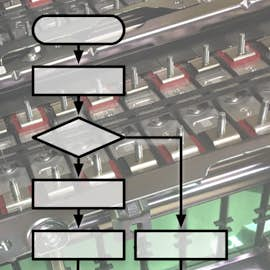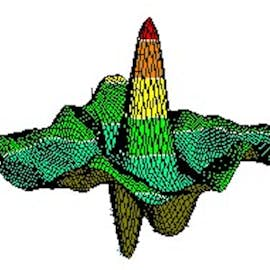
Master of Science in Electrical Engineering
Fall 2 enrollment is now open!


Master of Science in Electrical Engineering
University of Colorado Boulder
Accredited degree in 12–24 months
Earn the same diploma as students on campus by completing 30 credit hours
$20,010 USD total tuition
Flexible pay-as-you-go, per-course basis
Admission is performance-based
Complete a series of courses with an overall GPA of 3.0 or higher to gain admission.
100% online learning
Pre-recorded lectures, rigorous assignments, and connection with peers and course facilitators.
Accelerate your career and future-proof your skills with a top 5-ranked electrical engineering graduate program.
A rigorous and advanced curriculum in electrical engineering prepares you to design and build what interests you.
Elevate your career and prepare for the future with CU Boulder’s Master of Science in Electrical Engineering offering focus areas in embedded systems, power electronics, and photonics and optics. You will receive the same high-quality education and rigor as on-campus students. Taught by world-class faculty, the advanced curriculum combines theoretical foundations and practical experiences to help you take your career to the next level.
You don’t have to choose between graduate school, family, or your job. Designed for working professionals, this program consists of 8-week sessions, a stackable, flexible curriculum that lets you customize your learning experience, and performance-based admissions which drastically simplifies the admission process.
What's in this degree program?
Admissions Information
Questions? Email us at at msee-mooc@colorado.edu.
Important Dates
- Oct 7: Fall 2 Enrollment opens
- Oct 21: Fall 2 Classes start
- Nov 29: Fall 2 Enrollment closes
Get started today
Start your first course or request more information
Accredited degree in 12–24 months
Earn the same diploma as students on campus by completing 30 credit hours
$20,010 USD total tuition
Flexible pay-as-you-go, per-course basis
Admission is performance-based
Complete a series of courses with an overall GPA of 3.0 or higher to gain admission.
100% online learning
Pre-recorded lectures, rigorous assignments, and connection with peers and course facilitators.
Accredited degree in 12–24 months
Earn the same diploma as students on campus by completing 30 credit hours
$20,010 USD total tuition
Flexible pay-as-you-go, per-course basis
Admission is performance-based
Complete a series of courses with an overall GPA of 3.0 or higher to gain admission.
100% online learning
Pre-recorded lectures, rigorous assignments, and connection with peers and course facilitators.
Accelerate your career and future-proof your skills with a top 5-ranked electrical engineering graduate program.
A rigorous and advanced curriculum in electrical engineering prepares you to design and build what interests you.
Elevate your career and prepare for the future with CU Boulder’s Master of Science in Electrical Engineering offering focus areas in embedded systems, power electronics, and photonics and optics. You will receive the same high-quality education and rigor as on-campus students. Taught by world-class faculty, the advanced curriculum combines theoretical foundations and practical experiences to help you take your career to the next level.
You don’t have to choose between graduate school, family, or your job. Designed for working professionals, this program consists of 8-week sessions, a stackable, flexible curriculum that lets you customize your learning experience, and performance-based admissions which drastically simplifies the admission process.
What's in this degree program?
Admissions Information
Questions? Email us at at msee-mooc@colorado.edu.
Important Dates
- Oct 7: Fall 2 Enrollment opens
- Oct 21: Fall 2 Classes start
- Nov 29: Fall 2 Enrollment closes

Demonstrate you can master the work to gain admission.
Simply prove that you can do the work by completing a series of 3-4 for-credit courses called a “Pathway Specialization''with an overall GPA of 3.0 or higher to gain admission.
No need to worry about transcripts, letters of recommendation, GRE, or TOEFL scores.
You can choose one of five pathway specializations to get started: power electronics, embedding sensors, and motors, FPGA design for embedded systems, optical engineering, or semiconductor devices.

Pay-as-you-go tuition with short, eight-week sessions
- $20,010 USD tuition total $667 per credit hour, $20,010 for the full 30-credit master's degree. Pursue a high-quality education at a more affordable price.
- Pay-as-you-go tuition Only pay for the courses in your next session. You’re free to take a session off without charges or penalties.
- Bite-sized and stackable Courses are 0.6 - 1.2 credits each and contained within an 8-week session. Take individual courses that interest you and stack them to earn a graduate certificate (9 credits) or a master’s degree (30 credits).

Access a flexible curriculum created to empower you
You can take all 30 credits in this program at your own pace, and tailor your coursework to your career goals. Choose electrical engineering courses in the following focus areas of power electronics, embedded systems, and photonics and optics as well as areas from other CU Boulder graduate programs in computer science, engineering management, and data science.

Enrollment for Fall 2 session is now open!
Fall 2 enrollment closes Nov 29
Enroll in a for-credit course today
Want to enroll in the full degree course now and earn transcriptable credit? You can enroll directly with the university as a non-degree student.Enroll in for-credit now
Enroll in course
1. Enroll in course
Explore course options to find the courses that fit your needs
Pursue admission to degree
2. Pursue admission to degree
Fill out a form or application on the university's website and pay to enroll
Get accepted and enroll
3. Get accepted and enroll
Complete the course and earn transcriptable college credit which will count toward your degree learning if you are accepted into the full degree program¹
Transfer credit
4. Transfer credit
You can apply to transfer the credits earned towards your degree program after admission to the program
¹Each university determines the number of pre-approved credits that may count towards the degree requirements according to institutional policies.
Build toward a degree
These courses are part of the degree program. If you are admitted and enroll, your completed coursework may count toward your degree learning and your progress can transfer with you.¹
 U
UUniversity of Colorado Boulder
Sharpen your product development skills
Beginner · Specialization
 UU
UUMultiple educators
Get Started in Algorithms for Battery Management
Intermediate · Specialization
 U
UUniversity of Colorado Boulder
Essential quantum mechanics tailored for engineer
Intermediate · Specialization
¹Successful application and enrollment are required. Eligibility requirements apply. Each institution determines the number of credits recognized by completing this content that may count towards degree requirements, considering any existing credits you may have. Click on a specific course for more information.
Frequently asked questions
Yes. The diploma is a degree conferred for a Master of Science in Electrical Engineering, which is the same degree students receive in the on-campus program. There are no designations on official CU transcripts, diploma, or certificates, that this is an online program.
Graduates of the department’s Electrical Engineering programs have gone on to become engineers at Intel, Lockheed Martin, Tesla, and Google. Admitted degree-seeking students have access to Handshake, a comprehensive resource for all things career-related.
According to a recent survey from Deloitte, 82% of executives in the semiconductor industry reported a shortage of qualified technical candidates and 60% of companies report that electrical engineering jobs are some of the most difficult to fill. This program will prepare you to take on these in-demand engineering roles.
Yes. The online MS-EE program falls under the University of Colorado Boulder’s overall accreditation by the Higher Learning Commission (HLC).
Yes. Most for-credit courses have a non-credit version. You may upgrade from non-credit to for-credit at any time during the enrollment window. Previously completed assignments will be automatically applied to your for-credit experience.
If you are taking a non-credit course, you only pay the monthly Coursera subscription fee.
If you are taking a for-credit course, you only pay the $667 per credit hour tuition fee.
Note: If you started the non-credit course within the same month that you enroll in a for-credit course, you will not receive a refund for the monthly subscription associated with that non-credit course because the subscription fee is paid to Coursera, not to the University of Colorado Boulder.
Email us at msee-mooc@colorado.edu.
Students can access course materials on the Coursera platform – lecture videos, quizzes, and readings – anytime and anywhere. Courses have been designed by CU Boulder’s faculty specifically for an online learning environment.
All exams will be administered by ProctorU, a proctoring service that allows students to complete exams or project-based assessments online.
Some for-credit courses may require you to purchase lab and/or development kits for more hands-on learning in addition to the tuition.
The MS-EE degree may take 24 months to complete. This may vary depending on your learning pace. A graduate certificate may take 6-9 months to complete. An individual course can take between 3-6 weeks to complete.
Each course may take 4-6 hours of work per week depending on your knowledge and skill.
You can learn at your own pace in a flexible and fully online format. Take only the coursework you need to build credentials that will advance your career, from courses, to graduate certificates, to a full master’s degree.
30 credits are required to earn the Master of Science in Electrical Engineering degree. The 30 credit hours includes a pathway specialization with a cumulative GPA of at least 3.00 for all for-credit courses taken to date.
You can take as many courses as you want at the same time. You must complete all for-credit coursework and exams by the last day of each session. We recommend that you start with one course and decide from there if it’s feasible to take more in the same 8-week session.
Yes. When you successfully complete the online MS-EE degree, you may come to campus to participate in the graduation ceremony.
No. You cannot switch between online and on-campus programs.
Yes. The same world-class electrical, computer, and energy engineering faculty at CU Boulder teach both online and on-campus courses.
Yes. There are weekly online office hours where you can interact with course facilitators (similar to a teaching assistant) and ask questions about the course material.
Yes. The current student Slack channel and discussion forums are ways to connect and network.
Yes. Admitted degree-seeking students have access to Handshake, a comprehensive resource for all things career-related.
Admission is performance-based. To get started, complete the enrollment form, indicate you want to earn the master’s degree (if applicable), select the course, and pay tuition.
Simply complete a series of courses called a “Pathway Specialization''with an overall GPA of 3.0 or higher to gain admission to the master’s degree program.
No. The online MS-EE program does not accept transfer credits from other institutions.
Up to 9 credits offered by CU Boulder's MS-DS or ME-EM on Coursera programs may be applied toward the total 30-credit hours required to complete the MS-EE degree. Courses must be graduate level and meet all applicable academic standards and may not be double counted toward two credentials of the same level.
There are currently no scholarships available.
Tuition is $667 per credit hour and is assessed on a pay-as-you-go, per-course basis. It costs $20,010 for the full 30-credit master’s degree.
No, tuition payments cannot be rolled over to future sessions.
There are no formally enforced prerequisites. Each course may recommend a variety of prerequisite skills and knowledge. To learn more about each subject and prepare yourself for the course, our faculty recommends these readings.
While relevant background and work experience can help you succeed in the program, it is not required.
If you are unsure whether you have the background to succeed, we encourage students to enroll in the non-credit course first. This will allow you to test your abilities and practice the skills required to pass the course and all assessments once you upgrade to a for-credit experience.
More questions?
Visit the learner help centerEnrollment for Fall 2 session is now open!
Fall 2 enrollment closes Nov 29